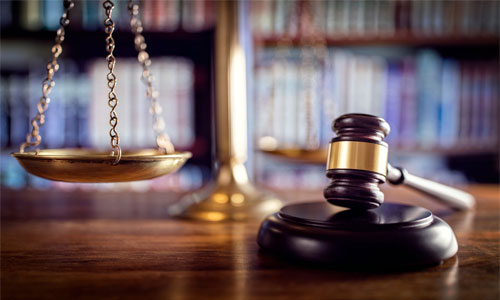In combating terrorism the United States of America has a different counter terrorist structure than other close allies, such as Australia, Canada, France, and the United Kingdom. Each has a structure that fits its particular legal system and culture: there is no ideal solution. A continuing issue is whether there needs to be a domestic intelligence service separate from the Federal Bureau of Investigation (FBI) which has had difficulty in breaking away from its law enforcement roots and cooperating with other intelligence services. In past coordinating structures have been created by each President to fit his administrative style and the perceived level of threat. The National Counter Terrorism Center (NCTC) is no longer in the CIA proper, but is in the Office of the Director of National Intelligence (ODNI). However NCTC contains personnel from the CIA, FBI of the Department of Justice and other members of the Intelligence Community. A counterterrorism center did exist in the CIA before the NCTC was established.
Anti-terror arrangements before and after 9/11
The National Security Act of 1947 had created the CIA but strictly forbade it from having any domestic police authority, however, the CIA still has multiple dimensions. The National Clandestine Service (NCS) of the CIA can infiltrate or otherwise gain human–source intelligence from terrorist organisations, their supporters, or from friendly foreign intelligence service. The NCS has a covert operations capability that, possibly in combination with military units from the United States Special Operations Command (USSOCOM) may take direct action against terrorist groups outside the United States. Above all, the key CIA counterterror partner is the FBI, which has the domestic operational responsibility for counterterrorism, both domestic intelligence collection and domestic police work. In the highly decentralised police system of the United States, the FBI also provides liaison and operates cooperatively with state and local police agencies as well as with relevant Federal units. Long before the 9/11 attack the US intelligence community has been dealing with aspects of terrorism. Those aspects included the support of guerillas against Soviets, in Southeast Asia, and other places where the guerillas methods may have included terror. In Asia, Latin America and Africa, the US worked with government to suppress terror.
In post-9/11 period the Government of United States felt the need to pass special orders/laws for persons detained by the US authority in connection with terrorist activities. Making the idea more clear Dick Cheney, the Vice President of the country on November 14, 2001, said, ‘the basic proposition here is that somebody who comes into the United States of America illegally, who conducts a terrorist operation killing thousands of innocent Americans, men women and children is not a lawful combatant. They do not deserve to be treated as a prisoner of war. They do not deserve the same guarantees and safeguards that would be used for an American citizen going through the normal judicial process. They will have a fair trial, but it will be under the procedures of a military tribunal. Although US Congress has not formally declared war against Al-Qaeda, the President has authorise the detention treatment and trial of non–citizens in the Global War on Terrorism under a ‘Military Order’ derived from the constitutional authority vested in his position as the President and Commander in Chief of the armed forces of the United States. It resulted in the prosecution of the war against terror in the detention by the United States of at least 650 citizens from more than 40 countries at military detention facilities on the US naval base at Guantanamo Bay, Cuba. As per a report prepared by Defense Department lawyer in 2003 Guantanamo Bay was preferred by the Administration because it offers the Administration certain legal advantages as it falls outside the jurisdiction of US courts and hence removes the possibility of detainee’s rights to question the detention in US courts. In succeeding year the Guantanamo Bay issue became a controversial one and US Supreme Court as well as a Federal District Court had passed comments in negative and found it a step which undermines the rule of law in the country.
For reasons known to all Osama bin Laden, Al-Qaeda and its various affiliates remained at the top of US research and analysis wings. Thousands of studies were made on the different aspects of Al-Qaeda networks in countries of the world, the US in particular. In this connection some occasional insights were offered in a way that was certainly believable, but without real documentation, it however, described the group a loose organisation of terrorists who may have no idea who the leader is or where the plans come from. Weiser and Golden quote Juliette Kayyem of the Harvard University, Kennedy School of Government: ‘Bin Laden is the leader of a movement that does not necessarily need a leader to function and be effective … This is such a diffuse structure that it can survive without him’. In sum what the reports do describe it is a loose association of two types of persons, planners and doers. The former gather intelligence, pick targets, and provide the materials. the latter are expendable persons whose commitment to the cause, but lack of special training, places them in such a role. Thus, the incomplete picture conjures up a highly dynamic group, with some semblance of leadership structure that may be important for the large efforts, but may not be critical for the maintenance of the terrorist activity. The group is financed by large amounts of money that bin Laden has brought to the process, but has been augmented by significant contributions and, probably, considerable entreneurial activity.
Home » Opinion » Contemporary Anti -Terror Laws and Structures of America
Contemporary Anti -Terror Laws and Structures of America
| Rajkumar Singh

